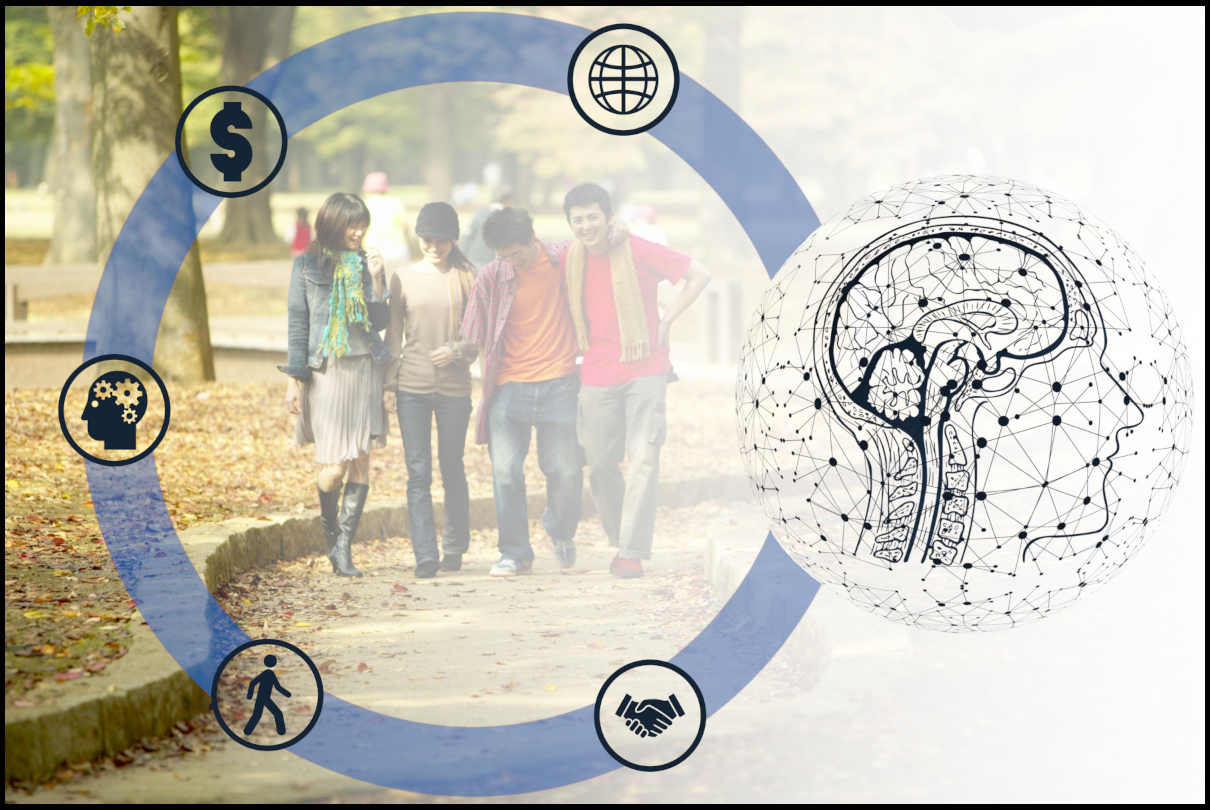The BRILLIANT Program
The vision of the BRILLIANT Rehab program is to optimize mobility of persons with ABI across the lifespan.
- Theme 1: Will aggregate data, collected using different types of technologies, to evaluate the complex interplay between biomedical, personal and environmental factors that explain variability in mobility.
- Theme 2: Will develop cost-efficient community mobility interventions that optimize outcomes for subgroups of patients with ABI.
In 2000 McGill University and the Université de Montréal joined forces with six rehabilitation facilities in the greater Montreal area to create the Centre de recherche interdisciplinaire en réadaptation du Montréal métropolitain (CRIR). CRIR aims to enable large-scale biomedical and psychosocial rehabilitation research to improve the function and social integration of persons with physical impairments across the life span.
In 2015, CRIR researchers established the Biomedical Research and Informatics Living Laboratory for Innovative Advances of New Technologies in Community Mobility Rehabilitation (BRILLIANT-Rehab) program to provide evidenced-based research to improve rehabilitation for individuals with Acquired Brain Injury (ABI: traumatic brain injury [TBI], cerebral palsy-fetal/perinatal brain injury, and stroke).
The vision of the BRILLIANT Rehab program is to optimize mobility of persons with ABI across the lifespan. The program will develop and deploy a comprehensive clinical and community-based mobility monitoring system to evaluate the factors that result in poor mobility, and develop personalized mobility interventions that are optimized for specific patient sub-groups. These innovations will be used by front-line clinicians to deliver cost-effective care; the right intervention to the right person at the right time, accounting for long-term functional potential and meaningful participation in the community.
- Identify the factors limiting or enhancing mobility in real-world community environments, and explain differences in mobility in individuals of all ages with ABI.
- Tailor mobility rehabilitation interventions and strategies to specific patient subgroups.


Create
Knowledge syntheses and best practice recommendations of mobility evidence.
Dissemination
Best ABI practices/policies using KU driven tools and resources
Implementation
Testing of our major KM strategies and toolkits for two identified ABI best practices in each CIUSSS and CISSS
Evaluate
Implementation and best practices with knowledge users in an iterative process.
BRILLIANT
Biomedical Research and Informatics Living Laboratory
for Innovative Advances of New Technologies


